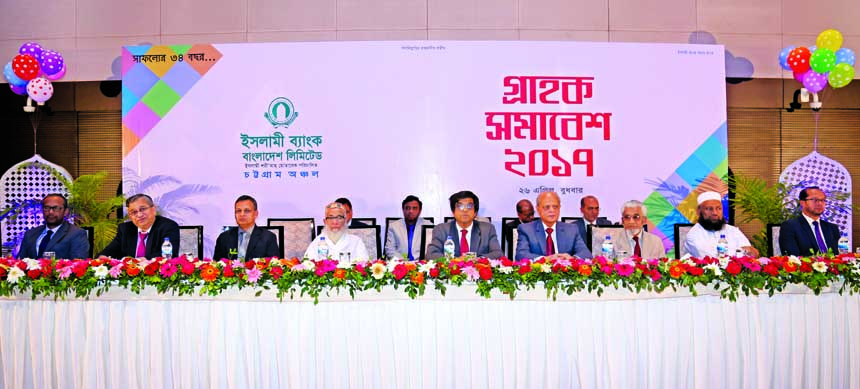Offshore banking, the unit of commercial banks that gives out foreign currency loans, is increasingly getting popular among both overseas and local investors because of the low cost of funds.
For instance, in 2016, loans under offshore banking grew 20.41 percent year-on-year to Tk 39,329 crore, according to data from the Bangladesh Bank. In 2014, the amount was Tk 26,174 crore.
The low cost of the fund is driving the growth of offshore banking.
A loan through the offshore banking unit costs 4-6 percent in contrast to about 10 percent locally.
“Offshore banking is getting popular with clients because of the low interest rate,” said Ahmed Kamal Chowdhury, managing director of Prime Bank.
Foreign currency loans are helping local producers, mostly garment manufacturers, to keep their product prices low.
“The availability of foreign currency loan has, in fact, helped bring down the overall interest rate in the banking sector,” he said.
Islami Bank leads the charge in offshore banking: as of last year it gave out Tk 3,103 crore.
Eastern Bank comes in second spot with about Tk 2,256 crore loans, followed by Brac at Tk 2,163 crore, Prime Tk 1,786 crore, City Tk 1,478 crore, UCB Tk 1,176 crore and AB Tk 1,136 crore, according to central bank data.
Among the state-owned banks, only Agrani has offshore banking: its portfolio, as of 2016, stood at Tk 109 crore.
Private banks' offshore lending last year totalled Tk 22,735 crore, while the nine foreign banks lent Tk 16,484 crore.
The initiation of offshore banking in Bangladesh dates back to 1985, when a guideline was issued to bring in foreign investment.
But the offshore banking units' activities were limited earlier as foreign currency was not available. They picked up steam in the last several years because of the mounting reserves, and faster growth of remittance and exports.
Through the offshore units, local banks borrow foreign currencies from abroad or local authorised dealer banks and lend to both foreign and local firms at LIBOR (London Interbank Offered Rate) plus rate.
The BB has been also liberal in allowing banks to provide foreign currency loans to local businesses.
An economist of the central bank said low-cost borrowing was giving foreign producers an edge over local producers, who had to pay higher interest for their local currency loans.
This prompted the central bank to open up -- a move that has helped in bringing down the overall lending rate, he said.
The economist said excess liquidity in the market is also pushing the interest rate down as most foreign currency loans are used for imports.
Imports, in terms of letter of credit settlement, surged 10.15 percent year-on-year in the first eight months of the fiscal year.
On the other hand, exports grew only 3.31 percent during the period, according to data from the BB.
The fast expansion of foreign currency loans has prompted the central bank to take an initiative to amend the guideline on offshore banking to beef up monitoring, said a senior BB official.
At present, regular banking norms do not apply to offshore banking. The amended guideline will introduce conventional banking norms such as similar capital requirement, provisioning, classification, credit rating, single borrower limit for offshore banking too. Offshore banking needs to be organised in a better way to mitigate any future risk from exchange rate fluctuation, the central bank economist said.
Chowdhury of Prime Bank said the main objective of offshore banking was to bring in foreign deposits but the banks could not do it. Now, offshore banking units mainly lend to local companies. Default rate in case of offshore banking came down to 0.26 percent last year from 0.29 percent in 2015, according to data from the.
But a top executive of a private bank said the risk of offshore banking lies in the recovery process, which is lengthy.
“If a client defaults, then it is very difficult to recover the loans. Banks can't recoup the loan directly from the client as custom clearance is also related to it,” he added.
news:daily star/28-apr-2017



 Arastoo Khan, Chairman of
Arastoo Khan, Chairman of